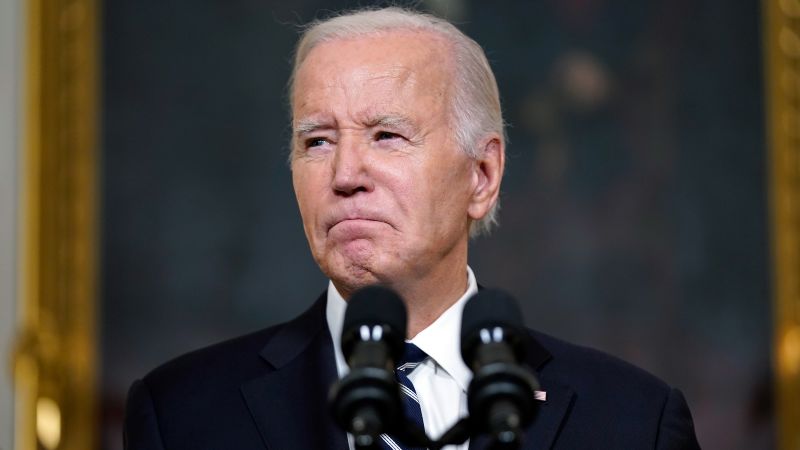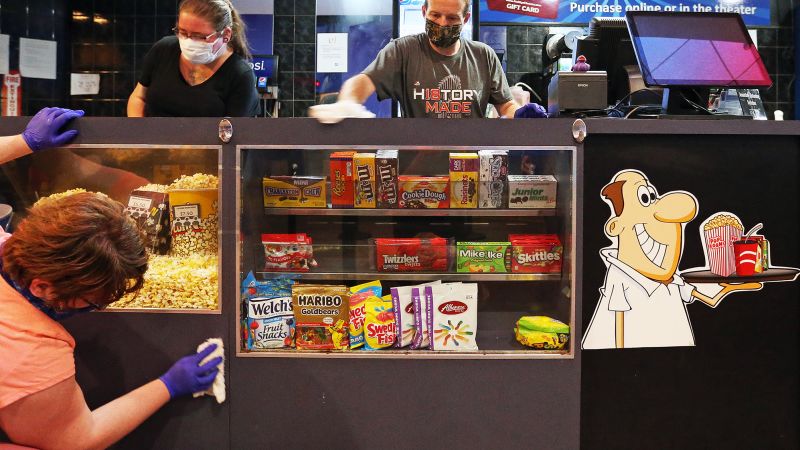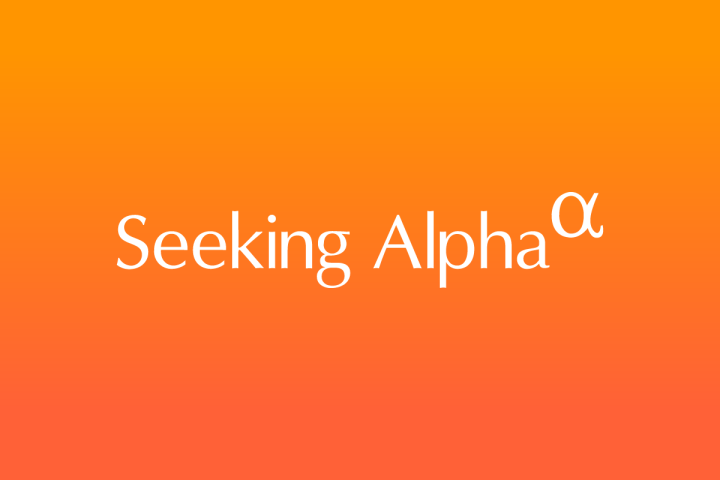GREETINGS FELLOW SHAREHOLDER
The calendar third quarter of 2023 was overall a messy one for financial markets at large, and not particularly fun for CSC shareholders as we gave back some of our first half gains both on a relative and absolute basis. Nonetheless, we are reasonably pleased with our year to date results.
Before we get to our stock-by-stock analysis, our overall view of life remains fairly consistent. Rising interest rates operate negatively on most assets and the economy at large with a lag. These changes are not “temporary”, and there will be interesting and painful consequences that naturally befall a world that coasted for over a decade on low rates and free money.
Our approach is concentrated on “handfuls” of specific companies, at specific values, run by specific people. No, we are not immune to the “tides’ in the short run, but if our work is right over the long run, we can zig while the market zags as we are seeing this year.
We say around Cove Street Capital: certain things can only be explained as “off spreadsheet” events. That Viasat (VSAT) launched the first of its 3 satellite network flawlessly only to have a Northrop (NOC) antenna fail – the first failure in 13 deployments- was not part of our investment narrative. While most costs are fully insured, the math on the actual cashflow produced by a giant increase in service capacity is pushed out to the right by at least 18 months. That is not a good thing. Now what are the odds that Inmarsat, which recently merged into Viasat, suffered what is likely to be a total failure after launch – the first in its 40- year history? Again, the satellite was insured for costs, but the delays clearly delayed a cashflow inflection point and thus decreased our present value.
Yes, we did increase our position and made Viasat our largest position prior to these launches. And yes, we sold 30% of the position in between launches to reflect a change in the time value of our money, and it became merely a “Top Ten” position.
And yes, the stock is stupid, stupid cheap with immense strategic value in a world of “more space.” The stock wakes up every day without memory and seeks to discount the future…and thus we endeavor to analyze the future in a probabilistic way, and weight positions appropriately given the risk / return balance. We think Viasat is a very good bet from here, just not our best, highest-conviction bet. We have taken tax losses in taxable accounts, but you will see this position back in portfolios again shortly after month end.
|
TOTAL RETURN (MUTF:CSCAX) — % as of September 30, 2023 |
||||||
|
3 MONTH |
YEAR to DATE |
1 YEAR |
3 YEAR |
5 YEAR |
10 YEAR |
INCEPTION (09/30/98) |
|
Cove Street Capital Small Cap Value Fund -7.48 |
9.21 |
17.76 |
14.24 |
2.59 |
4.43 |
7.05 |
|
Russell 2000® Index -5.13 |
2.54 |
8.93 |
7.16 |
2.40 |
6.65 |
8.32 |
|
Russell 2000® Value Index -2.96 |
-0.53 |
7.84 |
13.32 |
2.59 |
6.19 |
8.22 |
|
Performance shown for the period through January 20, 2012 reflects performance for CSC Small Cap Value Fund, a series of CNI Charter Funds, the predecessor to Cove Street Capital Small Cap Value Fund (“The Fund”). The Fund has the same portfolio manager and substantially similar investment strategies to the predecessor fund. The Institutional Class commenced operations on October 3, 2001. The performance results for the Institutional Class reflect the performance of the Investor Class shares from December 31, 1998 through October 2, 2001. The Investor Class subsequently closed, effective November 25, 2015. The performance data quoted represents past performance. Past performance does not guarantee future results. The investment return and principal value of an investment will fluctuate so that an investor’s shares, when redeemed, may be worth more or less than their original cost. Current performance may be lower or higher than the performance quoted. For performance data current to the most recent month end, please call 1-866-497- 0097. The gross expense ratio as per the Prospectus is 1.33%. The Fund imposes a 2.00% redemption fee on shares sold within 60 days of purchase. Performance data does not reflect the redemption fee. If it had, return would be reduced. |
Also under “off spreadsheet,” we did not model for a giant cyber-hack of MGM Resorts (MGM), of which our holding IAC Inc. (IAC) owns 18% – their largest value driver. The cybersecurity breach froze MGM’s reservation system late in September 2023, generally making a mangle of things. Both stocks dropped accordingly. Angi (ANGI), of which IAC owns 85%, reported a year-over-year revenue decline as Joey Levin (now full-time CEO of both IAC and Angi) focuses the company on more profitable business and retention…much to our delight. Dotdash Meredith remains mired in an ad recession as it continues its work onboarding the Meredith print properties to its digital monetization machine.
We view these challenges as annoying but temporary and the current market reaction as overly punitive. IAC currently trades $125m above the combined value of its cash, MGM, and Angi positions. At the current price, you “get” 31% of car-sharing marketplace TURO, the equity of publishing giant Dotdash Meredith, Care.com, Vivian Health, and other IAC companies for…$125m. Yes, we have taken this opportunity to add to our position.
E.W. Scripps (SSP) was a detractor in the quarter on concerns about the general economy and ad market, as well as the world of “strikes” which can affect the desire of auto companies to advertise and the ability to produce “scripted” television and movies. We think all these issues define “cyclical and temporary”, and we aggressively added to our position to make this a Top 5 position. Scripps has done a very nice job of positioning itself to capitalize on the evolution of the media industry. We think “legacy” TV has much longer life to it than “fancy talk” suggests, and despite obvious exposure to the cyclicality of the advertising business at large, Scripps is a cash gusher that is rapidly paying down debt from a series of acquisitions that were enabled under the prior administration. Pick your favorite math, but ours suggests that free cashflow to pay down debt is creating 30% annualized increases in equity value at current levels. We have had different exposures to SSP over the last decade – ranging from zero to our current Top 5 position.
While the core offerings of Viemed Healthcare (VMD) enable an efficient, at-home service to increasingly ill patients that facilitates breathing and allows them to avoid visits to the ER. That apparently is a not view shared by some large Medicare Advantage (MA) plans. In particular, there has been a recent trend towards elevated denial rates for non-invasive ventilation (NIV), as high as mid-80s for under one large MA plan and the mid- 60s for a couple other large MA plans. These rates are aggressive relative to many other MA plans that have as low as mid-teens denial rates. In the short- term, these denial rates have put some pressure on the stock, but despite these issues, Viemed continues to profitably grow as well as acquire other NIV providers.
Lifecore Biomedical (LFCR) remains “under wraps” in a strategic review process being led by Morgan Stanley. We sold our common stock position near 2023 highs to risk adjust our exposure. We retained the preferred shares, which continue to pay-in-kind. We expect a reasonable outcome to be announced this calendar year.
Ecovyst (ECVT) took a short-term hit as it announced earnings that were frankly a bit more volatile than we…and other investors…were expecting. As a niche special chemical business, ECVT is subject to the whims and ordering patterns of much larger global players in the short run. We think the multiple applied to this high-margin stream of free cashflow is absurdly low and it remains a Top 5 position.
Hallador Energy (HNRG), which was our top contributor in the quarter, continues to perform strongly, as the inherent value in “old carbon” continues to regain some grudging appreciation in financial markets. We continue to think this is an investment with “legs” given the difficult supply/demand issues inherent in any form of a “green” transition. But importantly, we continue to risk weight the stock as a classic commodity and are net sellers to maintain a 2.5% position.
Similarly, CNX Resources (CNX) was a contributor for many of the same reasons, plus the somewhat surprising announcement that the Biden administration signed off on a bill that is allowing the completion of the Mountain Valley Pipeline project. The project is a multi-billion dollar endeavor that is 95% complete that will enhance the takeaway of natural gas from core Marcellus gas reserves to people who need it in the Southeast. Sometimes good things happen off spreadsheet.
Heritage Crystal Clean (HCCI) was sold to private equity for $45.50 per share. Our original purchase price at the firm was in the teens nearly a decade ago. This is the unicorn version of how investment life should work: find a good business that grows, find a good CEO who understands value per share math, and then hold on for dear life no matter what the nonsense d’jure is in the headlines. That is obviously a simplistic version of life (after all Heritage has a segment that defines earnings volatility), but it’s pretty close to our experience with HCCI (that’s a good thing).
DLH Holdings Corp. (DLHC) is a consultant that provides a wide range of public health and life sciences services to various Federal health agencies such as the Veterans Administration and Centers for Disease Control. It has added high margin cybersecurity capabilities via its acquisition of Grove Resources last year. This is an asset-lite, high free cash flowing business with generally sticky 3 to 5- year contracts. This company trades at a discount to its peers—despite having best in class margins— largely due to an overhang for a high revenue but low margin contract that comes up for renewal in the coming months. Our research indicates the stock is priced for a “worst case” scenario with respect to this renewal, and other likely outcomes present a high-upside case. Furthermore, management has been astutely using cash to acquire smaller players in adjacent capabilities— such as Grove—to diversify revenue across more contracts. CEO Zach Parker came in seven years ago when the company was doing $2m in EBITDA; they will generate somewhere between $30m to $35m this year. DLHC was a top performer in the third quarter as the management team continues to execute on its strategy and positions the company to be sold to a larger player.
We initiated a position in American Software, Inc. (AMSWA), the owner of supply chain planning software Logility. This software enables digital supply chain optimization with the most popular use case in product demand planning and primarily services consumer goods, food and beverage, and retail customers who are managing business-to-consumer (B2C) supply chains. This business generates lots of cash, boasts high returns on invested capital (ROIC), and is very sticky – once you train your team on the software and have all your relevant inputs embedded in the program, you are unlikely to switch.
This business trades at a discount to its peer set for reasons that stem from the founder’s controlling B- class shares in the company. He is 88 years old. The company has been overly conservative with its balance sheet, under-investing in growth and dragging its feet on acquisitions. Demand for supply chain software has surged following Covid, and yet this company continues to pay a dividend. Furthermore, the niche that Logility services is going through a goods recession. They are seeing sales cycles elongate while they are trying to move customers to the cloud. The investment community has punished the stock so far in 2023.
We see a catalyst to resolving these issues as the company publicly stated that they are conducting a process to convert the B shares of Founder Jim Edenfield into A shares. We have engaged with management on how to conduct the process and believe the resolution of this share conversion will eliminate a large overhang on the stock and enable a much more efficient use of capital going forward. We are already seeing signs of progress with a recent acquisition, a divestiture of a non-core business, and the adoption of a 10b5-1 trading plan for a share repurchase program. This company ultimately operates in a dynamic and fast growing industry that is consolidating. With the removal of Edenfield’s control, we see a sale to a larger player as a potential outcome.
We…and management… sold Chase (CCF) to Private Equity in a recently announced acquisition. The value was “fair” for a nice collection of businesses.
CommVault Systems (CVLT) has a market- leading position in the backup and recovery space for enterprises, offering on-premises storage, a hybrid private/public cloud solution, and a cloud- based solution called Metallic. When we first invested in CommVault in 2019, the company suffered from “Founders Syndrome,” which was overcome by numerous Board changes and the hiring of a new CEO, Sanjay Mirchandani. Mr. Mirchandani has done as we hoped and righted the legacy business’s cost structure while successfully launching and growing their cloud product Metallic. CVLT reached above what we believe to be fair value and we sold the stock.
Our world in public small cap equities has not been a favored asset class and has not been the recipient of huge flows of dollars. That has created real opportunities in real businesses with real values that are less affected by the fads of the day. We have plenty to do and see lots of opportunity but are being appropriately careful and choosy.
Thank you gain for your partnership.
Best Regards,
Jeffrey Bronchick, CFA
Principal, Portfolio Manager Shareholder | Cove Street Capital Small Cap Value Fund
|
The information provided herein represents the opinions of Cove Street Capital LLC and is not intended to be a forecast of future events, a guarantee of future results, or investment advice. Opinions expressed are subject to change at any time. The fund’s investment objectives, risks, charges and expenses must be considered carefully before investing. The statutory prospectus and summary prospectus contain this and other important information about the investment company, and they may be obtained by calling 1-866-497-0097 or visiting www.covestreetfunds.com. Read it carefully before investing. Top 10 Holdings — % as of September 30, 2023
Fund holdings are subject to change and should not be considered a recommendation to buy or sell any security. Current and future portfolio holdings are subject to risk. Mutual fund investing involves risk. Principal loss is possible. There is no assurance that the investment process will consistently lead to successful results. Value investing involves risks and uncertainties and does not guarantee better performance or lower costs than other investment methodologies. Investments in smaller companies involve additional risks such as limited liquidity and greater volatility. Investments in foreign securities involve greater volatility and political, economic and currency risks and differences in accounting methods. Concentration of assets in a single or small number of issuers, may reduce diversification and result in increased volatility. The Russell 2000® Index measures the performance of the small cap segment of the U.S. equity universe, representing approximately 10% of the total market capitalization of the Russell 3000® Index, and the Russell 2000® Value Index includes those Russell 2000® Index companies with lower price to book ratios and lower forecasted growth values. One cannot invest directly in an index. The Cove Street Small Cap Value Fund is distributed by Quasar Distributors, LLC. |
Original Post
Editor’s Note: The summary bullets for this article were chosen by Seeking Alpha editors.
Editor’s Note: This article covers one or more microcap stocks. Please be aware of the risks associated with these stocks.
Read the full article here







